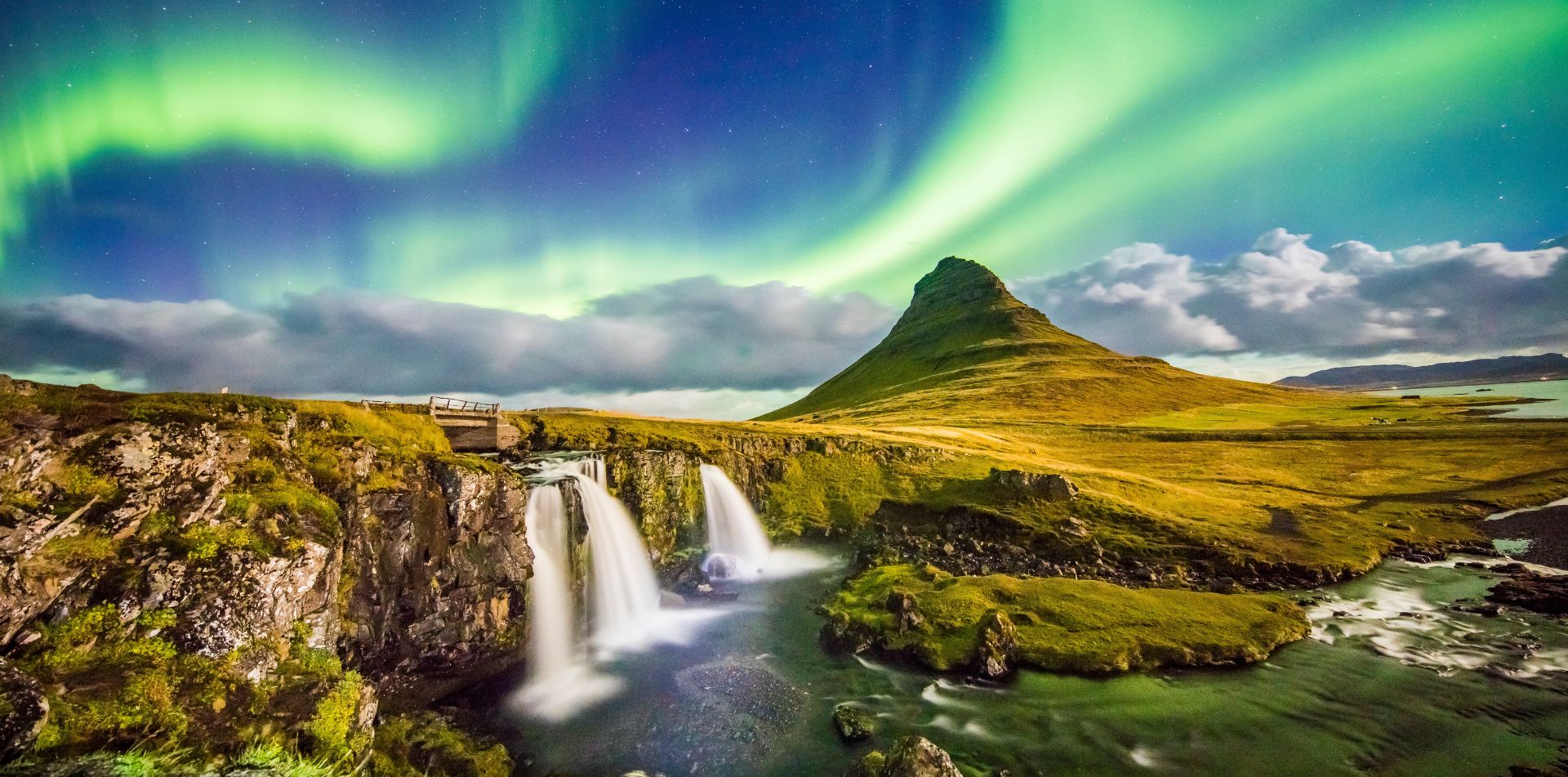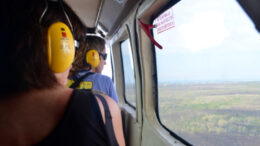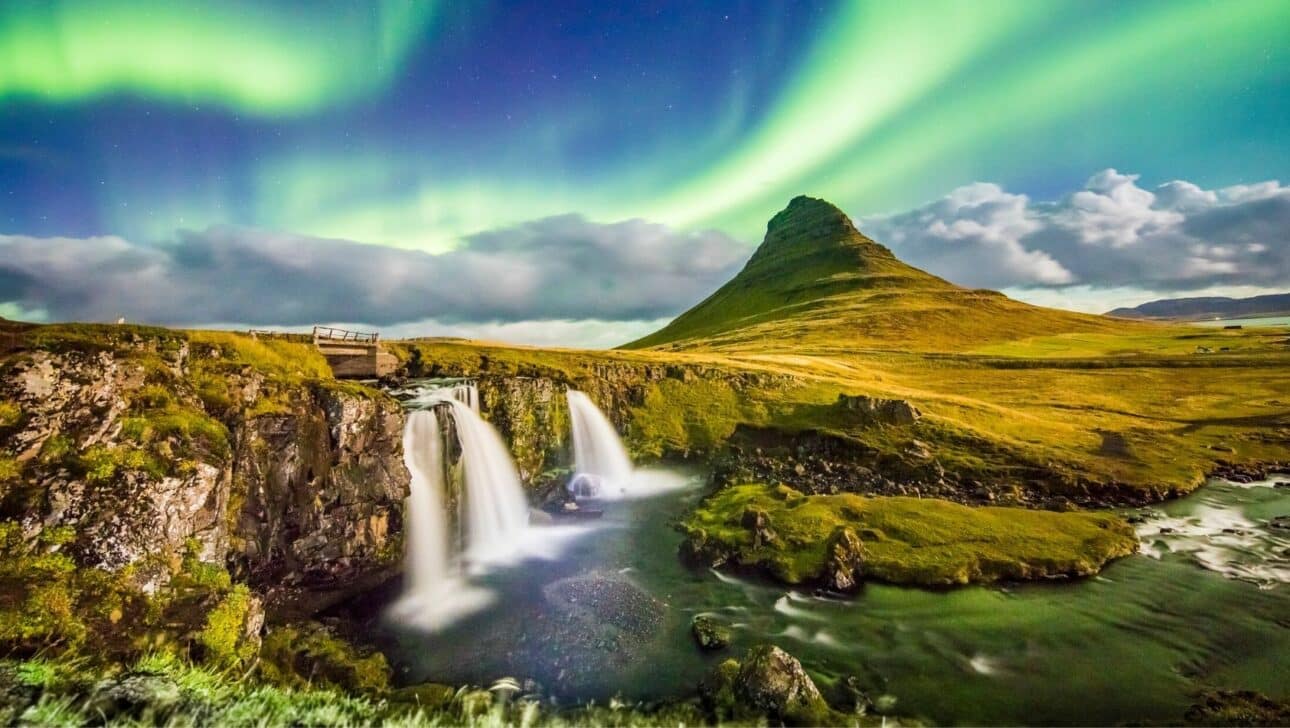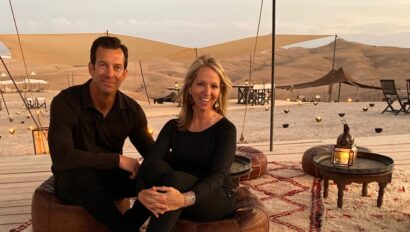Mel Robbins has become a household name in the world of personal development, rivaling even Joe Rogan as one of the most popular podcasters. Her podcast consistently ranks at the top of Spotify and Apple Podcast charts, with millions tuning in for her actionable advice on emotional resilience, mindset shifts, and personal growth. While this interview originally took place during the COVID-19 pandemic, Robbins’ insights remain timeless and universally applicable. Whether navigating global crises or everyday challenges, her principles—like the famous 5-Second Rule—continue to empower individuals to take control of their lives.
Join us as we revisit her reflections on travel, resilience, and her unforgettable trip to Iceland with Classic Journeys, offering lessons that resonate just as strongly today.
Few people travel as frequently and as relentlessly as Mel Robbins, who typically logs 150 days of the year on the road. Particularly known for her best-selling book, The 5-Second Rule and her TEDx talk, How to Stop Screwing Yourself Over, Robbins is one of the most-booked female motivational speakers out there, in addition to her other work, which in the past year has included launching The Mel Robbins Show. But like so many of us right now, Robbins is holed up with her family, in Boston (including her two college-age daughters and her son, an eighth-grader) complying with Massachusetts’s stay-at-home advisory due to the COVID-19 pandemic. And she’ll be the first to say that a life without any travel plans isn’t easy.
“I never thought I’d ever want to be on a plane again, but being locked with my family has made me really want to be traveling again,” quips Robbins. “I used to think I traveled too much. Now I’m like, ‘Oh my god, this is the secret to my marriage.’” The digital entrepreneur has responded to quarantine by doing a “Better Together” livestream show on YouTube at 12pm EST every single day she’s been in lockdown (there’s more than 20 episodes and counting). While every episode is a great #MindsetReset boost and well-worth watching, Robbins also talked candidly with us about how she’s spending her days, her dinnertime trick for coping with COVID-19 concerns and why she’s still thinking about her trip to Iceland with Classic Journeys. 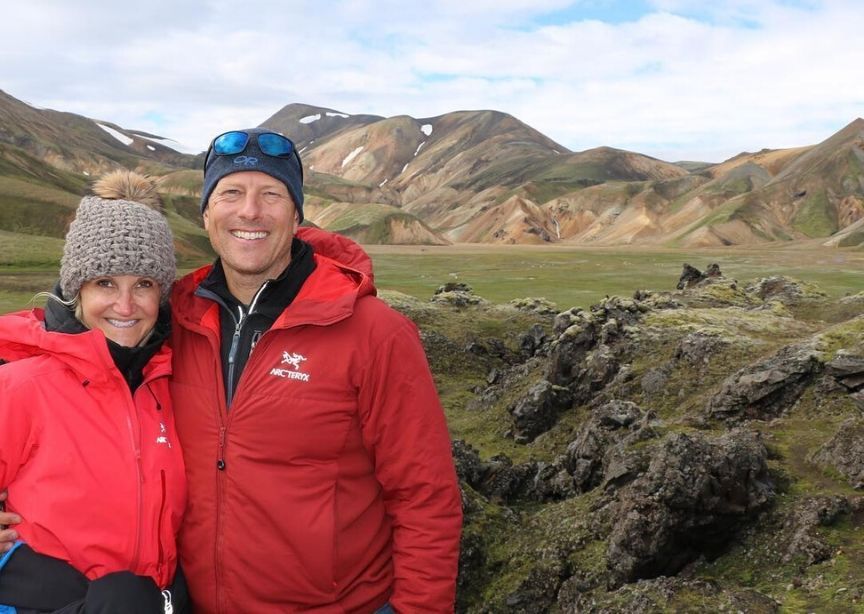
Classic Journeys: You’re known for a psychological approach called “the 5 second rule.” (Read exactly what “the 5 second rule” means here, and check out Robbins’ best-selling book devoted to the subject here). How can you apply the 5-second rule to the current global pandemic?
Mel Robbins: The main thing that I do is I do not allow my mind to ruminate and get too far ahead, worrying about what’s going to happen. The second that anything scary or negative comes into my mind, if I can’t shake it out, I count back 5-4-3-2-1. And that 5-second little countdown interrupts the negative thought, and it gives me a moment of consciousness to be deliberate about what I want to think about next.
And what I think about is the shores of Lake Michigan, where I grew up. And it reminds me that this is temporary, and this is going to pass, and when it does, I’m going to go home and see my folks and see Lake Michigan.
I am desperate to go somewhere warm, where I can swim. I literally went from ending an 18-month run of doing about 70 speeches and then launching a daytime syndicated talk show. I’ve never worked harder in my life. I was planning, like so many people, on taking two weeks off…and then all of this happened. And we’re right in it. And so, I just want to go somewhere, somewhere warm, I don’t even care where. I love the island of Eleuthera in the Bahamas, I love Lake Michigan, hell, I’d take Boston Harbor at this point—I just need to go somewhere!
There’s nothing better than to get Pinterest out and start creating your mood board for the next trip you’re taking. That’ll transport you out of the negativity and into the reality of what’s in your future. And we’ve been talking about going to Patagonia or to the Galapagos with Classic Journeys.
Classic Journeys: Great! And speaking of travel, you and 11 members of your family took a trip to Iceland with us last year. What do you remember the most about the trip?
Mel Robbins: My parents are enormous Classic Journeys fans, and for my mom’s 70th birthday, they wanted to go to Iceland.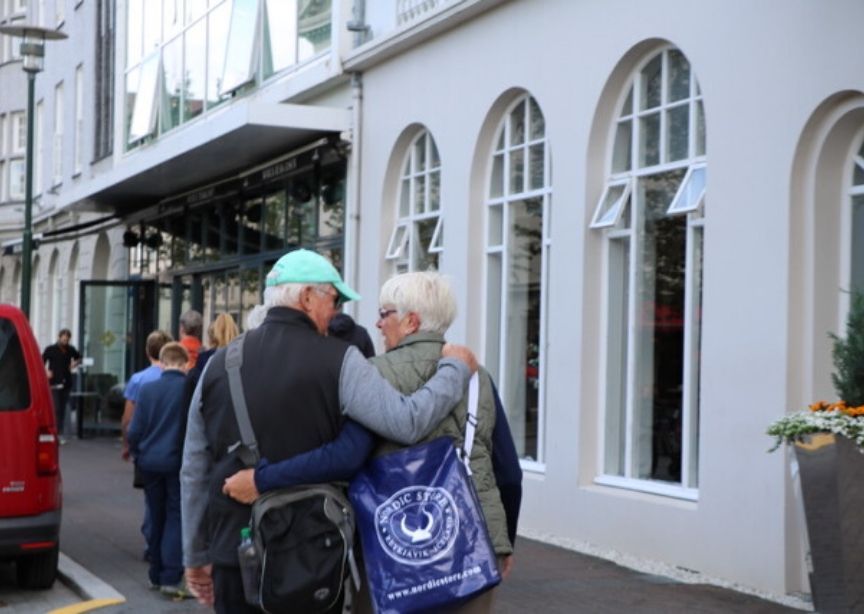
Being 50 years old, I’m at a point in my life when I prioritize an excellent meal, a good drink and a great night’s sleep, so I was extremely concerned about the type of trip my parents would organize for 11 of us. When I got the itinerary—as we’d always wanted to go to Iceland—I went through it, looked at all the hotels and the restaurants. And I was shocked: Everything on the itinerary was something I would have picked.
Our guide Atli is the best person on the planet. He may have ruined travel for us forever because we will now hold all travel guides to the highest level possible. He’s just the greatest. And we have a very fun family. Given that I am an author, a motivational speaker, and I make a living in personal development, the five of us in my family are really into deep conversations, and feelings, and all those deeply connected games and activities. My brother and his family are kinda into that, my parents, not so much. So, the fact that Atli managed to put on a world-class trip that kept us all moving, all at very different athletic levels, and was able to keep boys from the age of 10 to college-age girls all entertained and interested was just incredible. And I know he got a huge kick out of us too.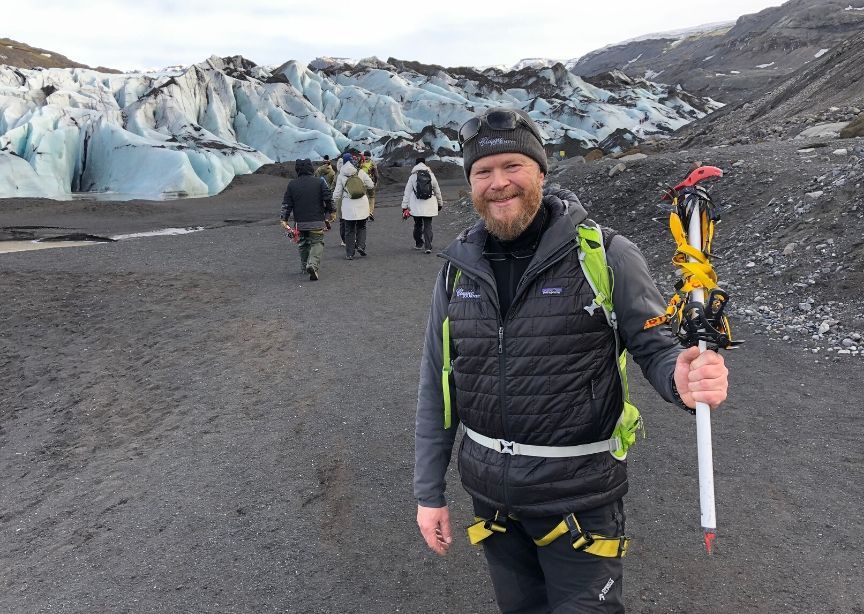
Some of the highlights were really getting off the beaten path. We went to Þingvellir National Park, a place where they filmed some of the scenes for “the Wall” in Game of Thrones. And there was a spot where we could go scuba diving in arctic waters. Those of us who did not want to do that—myself included—Atli took on this secret little hike. We found ourselves, instead of going where everybody else was going, at the base of that wall. 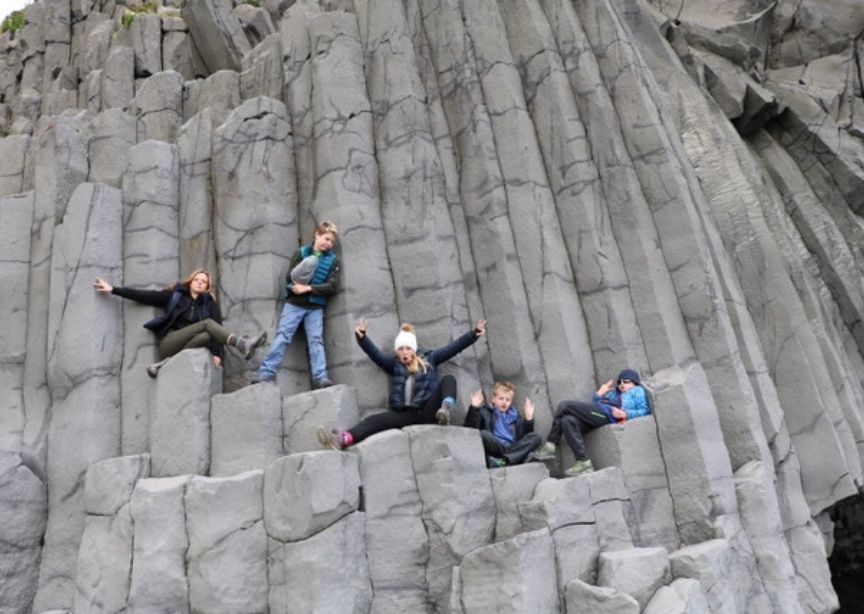
That was one thing that worked brilliantly along the trip. No matter what we were doing, there was something for everyone. My husband is Mr. Outdoors, he’s on the advisory board of the National Outdoor Leadership School (NOLS), has done a ton of NOLS trips, he leads mens’ wilderness retreats, he was a biking guide right out of college, he’s super athletic. My kids are really into all that stuff, my parents really are not. They love nature, they love adventure, but they’re not going to bungee jump, and my mom didn’t want to scuba dive and neither did I. But everywhere we went there was something for everyone. And it kept the family bickering down to a minimum. That was the other thing: Normally we have about a three day threshold for all of us together before we have a huge explosion. We didn’t really have any issues on this trip, which is shocking.
Atli kept it so interesting and kept us very well fed, so there were no “hangry” issues—it’s truly all the little shit that you wouldn’t think makes a difference that actually changes the group dynamic a lot. It was so well-paced, there was a ton of stuff to look at and do, we were in places for the right amount of time. It was absolutely fantastic.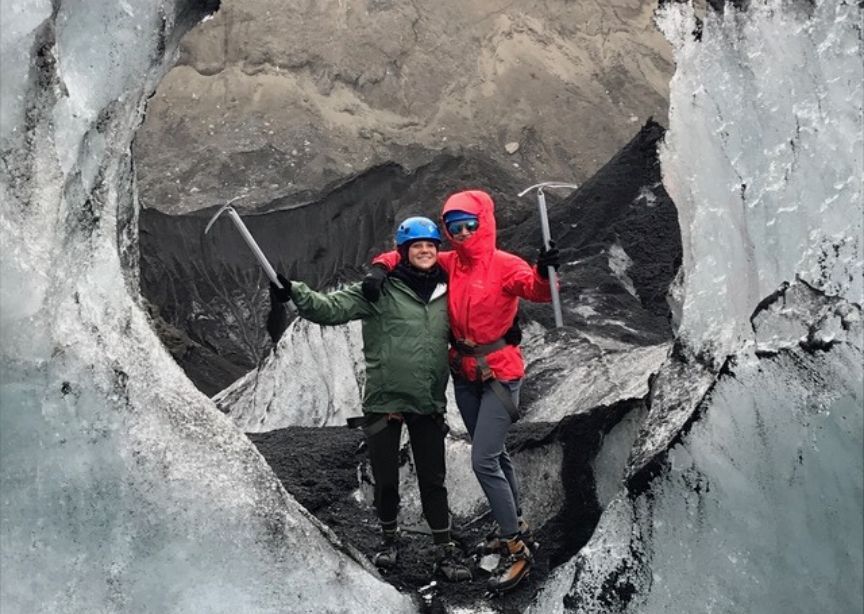
Classic Journeys: You’re home with your entire family in Boston right now, yet still working, livestreaming, writing your next book, etc. How are you and your family coping, and what advice do you have for others doing the same?
Mel Robbins: We all need to take the collective pressure off. You do not need to turn this into a retreat, you do not need to get six-pack abs, you do not need to launch the next startup that becomes the unicorn company that changes the face of humanity. If you’re inspired to do that, god bless you, and go do that. But for most of us, we’re quarantined, and we’re trying to work and not kill the people we love. This is unprecedented, nobody’s ever gone through this, nobody knows that they’re doing, we’re all making it up as we go. And the one saving grace has been to insist that everybody in our family create a new routine for this moment.
I have to implore all parents and caregivers: Do not create a routine for your kids if they’re out of elementary school. Because the thing that the kids are dealing with is, they’re grieving so much loss right now and they do not have the perspective that we have. The biggest loss they’re grieving is their independence. At the very moment when independence matters most, they got stuck back at home with you. This is their worst nightmare. So you’ve got to give them some independence back by having them create their own routine.
There’s one thing that’s consistent about everybody’s routine in our household: We always meet for family dinner. One thing that we do at our dinner table, which we’ve always done—we did this on our Classic Journeys trip to Iceland with our guide, Atli, too—is to talk about the high of the day and the low of the day. You go around the table and ask, “What percentage are you?” Or you can do it 0-10. Last Sunday, I was at 5%. I had gone to the grocery store, and it was the first time I’d seen them rationing access, and everybody had face masks on and the new normal hit me like a wave. I felt this overwhelming sense of despair about how long this was going to be. It really took me down. But talking through why you answer this question the way you do, it’s a non-cheesy, non woo-woo way for any family to connect at a deeper level, and to hear how you can offer support without anyone having to ask for it.
My son is the happiest he’s ever been in his entire life, being quarantined at home, because he doesn’t have to do shit. He’s online, in class first thing in the morning, then at noon, and then he’s off. He’s literally playing video games all day. [Our dinner table conversation] is why I know my son’s doing so great—he shows up at the damn table every night and says, “I’m 90% today, it’s been fantastic!” And I’m like, “That makes me happy, it’s bringing up my average a little bit!”
Here’s the thing, this is what you borrow: Say, “What do you need to be supported tomorrow?” You don’t have to manage anything else about anybody else, just ask for percentages and then talk about tomorrow.
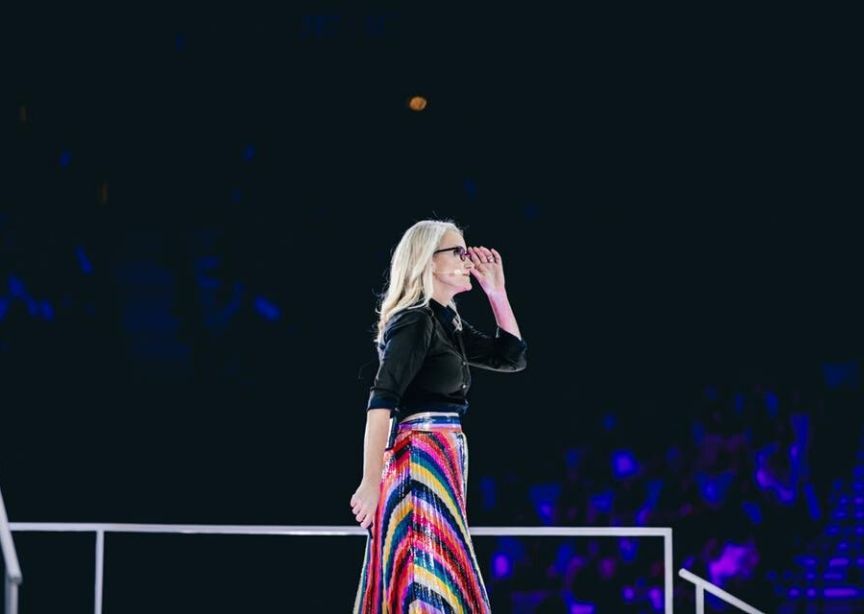
Classic Journeys: As a popular motivational speaker with a large, devoted fan base, what are your followers asking from you right now?
Mel Robbins: My followers are asking a lot about anxiety, like how to fall asleep—anxiety is keeping them up—and just a lot of questions in the zone of what I’m going to call “emotional resilience.” And what is that? It’s the ability to cope with stressful, uncertain situations, and not lose your shit. It’s the ability to cope, and to not get triggered emotionally. It requires a lot of self-awareness. It requires you to recognize when your emotions are taking over. And it requires you to be able to tune in so you can tune down your emotional response. Then you can continue to show up for your job, for your family, for the people you’re caring for, and you can meet this unprecedented moment with a bit more courage and a bit more steadiness than you might have otherwise.
Emotional resilience is a skill that you can learn. So a lot of the things that I’m talking about in our livestream are just about small strategies that allow you to do that. Our dinner table game has two things: 1-10/percentage and “how can I support you?” Those are two tools that build emotional resilience. Pushing down the feelings you have means those feelings are going to eat you alive. Talking about what you’re feeling, rather than pushing those feelings down, is the fastest way to move through those feelings. And it’s also the fastest way to feel comfortable with uncomfortable feelings.
And the biggest discomfort people are feeling right now is grief. We’ve lost our normal life. We’ve lost connection with our friends and family physically. We’ve lost spring sports. We’ve lost prom. We’ve lost graduation. We’ve lost the way we expected things to go. We’ve maybe lost that family trip we were planning this summer. And that is a very real and complicated emotion. You feel anger, you feel sadness, you feel disappointment. And if you have a roof over your head, and you have a job, and you have food, you then do something to yourself that makes that grieving worse: You invalidate your grief. You say, “Well, I don’t have a right to be sad that my trip got cancelled, because there are some people who are fighting for their lives.” But there is no comparison game when it comes to your loss. Your loss is personal. It’s important to validate it for yourself, and hugely important for you to validate it for your loved ones. Because that loss of the prom, that is some real shit for a teenager. Because they don’t have the perspective that we do, that life is gonna go on, and that in a couple years it’s not going to matter. They can’t even hear it because they’re processing their own grief.
You didn’t choose this, but you’ve gotta choose how you show up. That’s the difference between having post-traumatic-growth and post-traumatic stress—which is the disruption that you feel in your nervous system when something is done to you that is traumatic. And this is traumatic. When you look at the number of people who are losing their jobs, when you look at the headlines, when you look at the number of people who could die from this, when you look at the disruption to our economy and to our daily life, this is a form of trauma. And even though you didn’t choose this, you can choose to meet this moment of uncertainty, and grow from it. That’s where the emotional resilience comes in. And that’s where you can find post-traumatic growth.
You can choose to create a level of control and emotional safety by creating a new routine. You can start to work on calming down your nervous system by doing breathing exercises or starting a meditation practice. You should absolutely be exercising every day, even if you hate it. Negative emotion and trauma get stored in your nervous system and your body, and the best way to deal with that is to move. Even a 10-20 minute walk outside, or streaming something that makes you sweat—it is scientifically proven to change the chemical structure of your brain and to help you flush out all of the negative, toxic stress you’re feeling.
The other thing you can do right now is to realize that some of the coping mechanisms we have—drinking too much, hitting the weed, eating crappy food, screaming at your kids—whatever your mechanism is that’s negative, this is an opportunity in time to try to insert a different coping mechanism, to try to grow while you’re under this pressure. Because when you’re under pressure and you get squeezed, your insides come out. And you can choose whether the inside that comes out is ugliness and more stress, or something that’s kinder and calmer.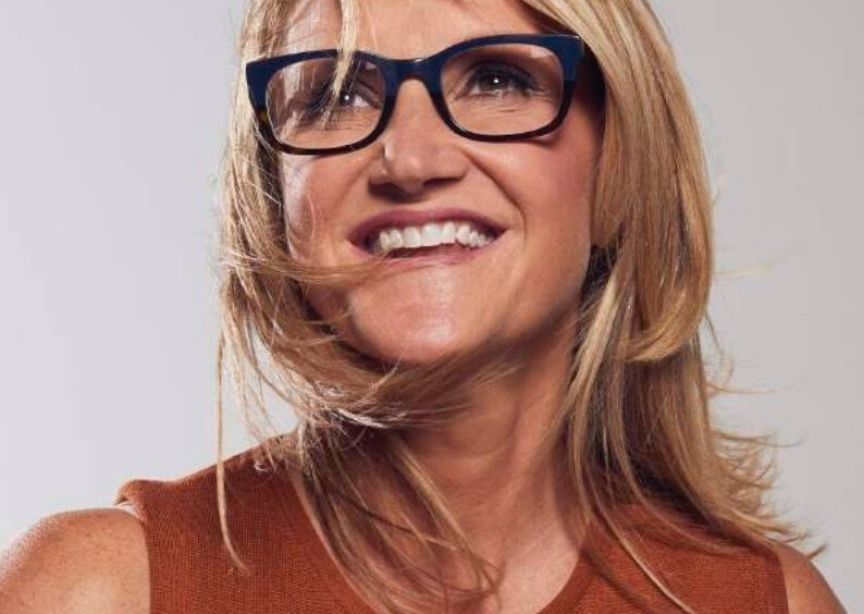
Kelly Phillips Badal is a Los Angeles-based writer, editor and world traveler who writes about travel, lifestyle and design. The former editor in chief of Interiors California, her work has also appeared in Sunset, Angeleno, BBC Travel and CondeNastTraveler.com; and she’s held staff positions at Better Homes & Gardens and Country Living. Kelly is married to travel and lifestyle photographer Tanveer Badal. Together they split their time between New York City, Los Angeles, and wherever their travels take them. Follow her at @kellybadal
More by Kelly Phillips Badal:
We Got The Last Flight Out Of Cape Town
COVID-19 Nearly Trapped Two Travelers on Remote Easter Island
The Architect of Microsoft Outlook Wants Us to All Communicate Better
